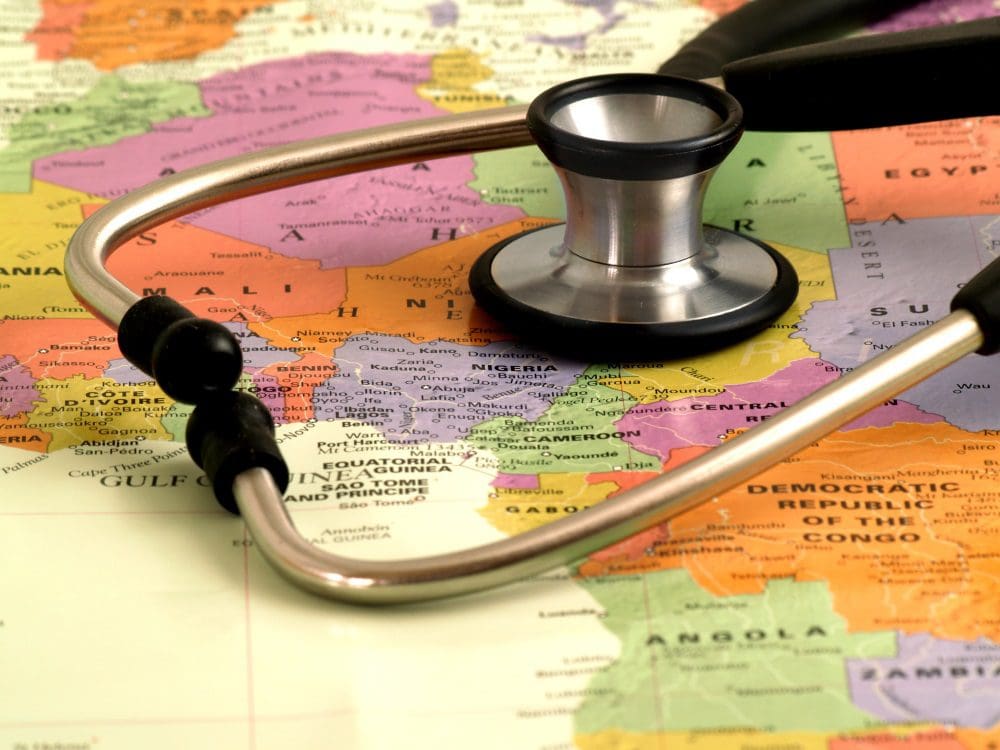 As travel advisors, we routinely see clients’ trips affected by unforeseen events. Sometimes it’s because a family member got sick and the trip had to be canceled before ever leaving home. Other times an accident during the trip requires medical assistance while abroad. The weather might delay flights overnight so the traveler unexpectedly needs a hotel room. Or their luggage is lost just before embarking on a 10-day cruise. No one expects these events to happen, but when they do, having a travel insurance policy limits the financial loss and helps the traveler get through the crisis.
As travel advisors, we routinely see clients’ trips affected by unforeseen events. Sometimes it’s because a family member got sick and the trip had to be canceled before ever leaving home. Other times an accident during the trip requires medical assistance while abroad. The weather might delay flights overnight so the traveler unexpectedly needs a hotel room. Or their luggage is lost just before embarking on a 10-day cruise. No one expects these events to happen, but when they do, having a travel insurance policy limits the financial loss and helps the traveler get through the crisis.
Do I need travel insurance?
Purchasing travel insurance is a personal choice, but just like car or homeowners insurance, travel insurance helps mitigate your financial exposure. First, you should calculate your total cancellation fees in the worst-case scenario. If that is more than you can afford to forfeit and get nothing in return, you need travel insurance. If your pain threshold is $5,000 and your trip costs $3,500, you may not need insurance, but if your trip is a $10,000 investment, can you live with that loss?
It’s worth remembering that travel insurance benefits go beyond the cost of cancellation. Another major benefit of travel insurance is having someone readily available to assist in making necessary arrangements if you have a medical emergency during the trip – as well as pick up the bills. Travel Maestro tip: Potential medical expenses can be huge. Medical evacuation, for instance, can cost tens of thousands out of pocket but is covered by travel insurance policies.
How much does travel insurance cost?
In general, travel insurance policies run about 4% to 10% of the cost of the trip. Coverage costs vary depending on the length of the trip and the age of the travelers. Very expensive or very long trips will incur additional premiums.
What does travel insurance cover?
Travel insurance covers the costs resulting from unforeseen events that happen both before and during travel.
- Supplier cancellation fees when accident or illness of you or a family member keeps you from traveling at all.
- Supplier cancellation fees if your home is made uninhabitable by flood or natural disaster.
- Medical assistance, hospitalization or evacuation due to accident or illness while on the trip.
- The cost of new transportation to catch up to your planned itinerary when weather situations like blizzards, hurricanes or volcanic ash eruptions make you miss a flight connection, cruise ship departure or part of a tour.
- The cost of hotel accommodations if delayed overnight for a covered reason.
- The cost of replacing essential needs if your luggage is lost or substantially delayed.
- Legal assistance if you have an auto accident in a foreign country.
Doesn’t my homeowner’s or health insurance cover some of these situations?
You need to talk with your own insurance representative to determine exactly what is and isn’t covered in your personal health or homeowner’s policies, especially medical evacuation inclusion. Typically, U.S. health insurance providers don’t cover treatments overseas or in international waters. But even if they do provide out-of-network benefits, they are not likely to have the resources to direct you to qualified English-speaking care outside the U.S. nor assist you during other emergencies. Travel Maestro tip: If you make a baggage claim on your homeowner’s policy, your normal deductible will apply, which may just negate the whole claim!
What are some special circumstances for travel insurance coverage?
Travel insurance policies have many variations in what they cover. If any of these special circumstances apply to your travel, ask more questions to know if you will be covered.
- Pre-existing medical conditions – If the condition was diagnosed before the purchase of travel insurance, it may be covered if it is in a controlled state for the last 120 days.
- High-risk activities – Usually adventure activities such as mountain climbing, sky diving, and scuba diving are not covered under basic travel insurance, but if you are engaging in sports or high-risk activities, special coverages do exist.
- Travel supplier strikes or bankruptcy – Generally work stoppages are covered events as long as coverage is purchased prior to an official corporate announcement of the impending work stoppage.
- Political unrest or terrorism – Most policies do include some provisions for political unrest, although they may have specific limits. For example, the policy has to be purchased prior to the U.S. State Department declaring a travel warning to the area.
What is Primary Coverage?
Some travel insurance policies are Primary or First Payer coverage, which means that they reimburse the eligible losses, up to the coverage limits, without a deductible. They may recover some of the loss from your private health insurance plan, but you don’t ever pay the deductible. This makes your claims process much easier and hassle-free. Travel Maestro tip: Ask if your travel insurance policy is primary coverage or not.
When should I buy travel insurance?
You can purchase travel insurance up to 24 hours before your travel begins, but obviously, you are not covered for any events that occur before you purchase. If the airline declares a strike or a hurricane develops into a named storm or your toddler comes down with the chickenpox before you buy the travel insurance policy, you are not covered for that specific cancellation reason. Travel Maestro tip: Many travel insurance policies cover pre-existing conditions when you purchase the policy within seven days of making your initial trip deposit, so it’s in your best interest to purchase early.
It’s a fact that over 20 million people purchase travel insurance each year. We can only guess how many people don’t make that smart investment and then forfeit their trip cost or have to handle emergencies abroad without assistance. But one thing is certain – they are some of the strongest advocates for travel insurance because they learned their lesson the hard way.
Covington Travel strongly recommends travel insurance because we’ve seen it save the day innumerable times. Unfortunately, we’ve also seen the disappointment when travelers did not have coverage for unexpected events. To find the best policy for your individual travel insurance needs, contact our knowledgeable advisors.
Disclaimer: This is a general explanation of benefits; certain conditions and limitations may apply.


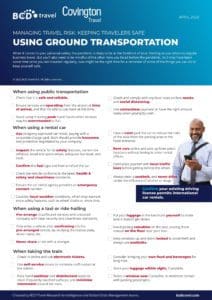
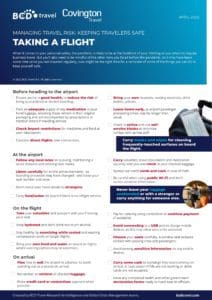
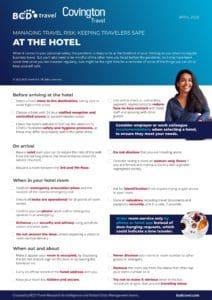

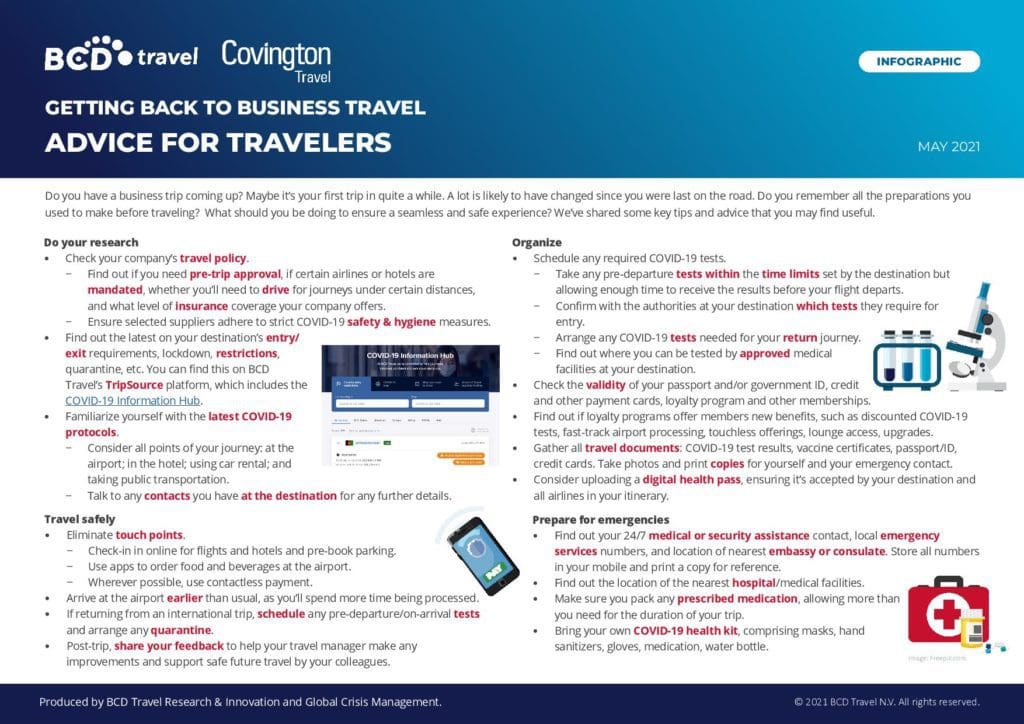
Leave a Reply